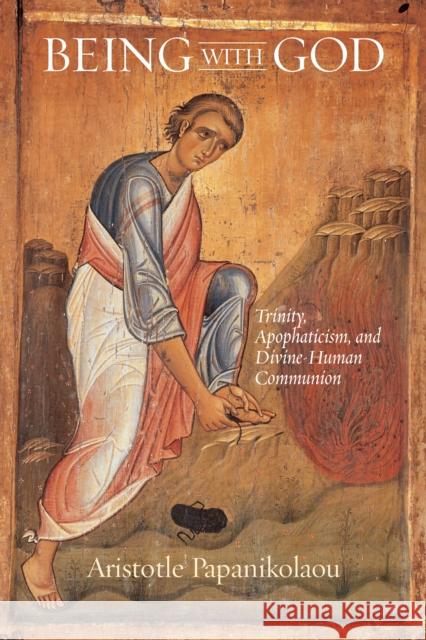Being with God: Trinity, Apophaticism, and Divine-Human Communion » książka
Being with God: Trinity, Apophaticism, and Divine-Human Communion
ISBN-13: 9780268038311 / Angielski / Miękka / 2006 / 248 str.
Being with God: Trinity, Apophaticism, and Divine-Human Communion
ISBN-13: 9780268038311 / Angielski / Miękka / 2006 / 248 str.
(netto: 107,02 VAT: 5%)
Najniższa cena z 30 dni: 111,45
ok. 22 dni roboczych.
Darmowa dostawa!
The central task of Being With God is an analysis of the relation between apophaticism, trinitarian theology, and divine-human communion through a critical comparison of the trinitarian theologies of the Eastern Orthodox theologians Vladimir Lossky (1903-58) and John Zizioulas (1931-), arguably two of the most influential Orthodox theologians of the past century. Aristotle Papanikolaou shows how an ontology of divine-human communion is at the center of both Lossky's and Zizioulas's theological projects. He also shows how, for both theologians, this core belief is used as a self-identifying marker against "Western" theologies. Papanikolaou maintains, however, that Lossky and Zizioulas hold profoundly different views on how to conceptualize God as the Trinity. Their key difference is over the use of apophaticism in theology in general and especially the relation of apophaticism to the doctrine of the Trinity. For Lossky, apophaticism is the central precondition for a trinitarian theology; for Zizioulas, apophaticism has a much more restricted role in theological discourse, and the God experienced in the eucharist is not the God beyond being but the immanent life of the trinitarian God.
The central task of Being With God is an analysis of the relation between apophaticism, trinitarian theology, and divine-human communion through a critical comparison of the trinitarian theologies of the Eastern Orthodox theologians Vladimir Lossky (1903-58) and John Zizioulas (1931-), arguably two of the most influential Orthodox theologians of the past century. Aristotle Papanikolaou shows how an ontology of divine-human communion is at the center of both Losskys and Zizioulass theological projects. He also shows how, for both theologians, this core belief is used as a self-identifying marker against "Western" theologies. Papanikolaou maintains, however, that Lossky and Zizioulas hold profoundly different views on how to conceptualize God as the Trinity. Their key difference is over the use of apophaticism in theology in general and especially the relation of apophaticism to the doctrine of the Trinity. For Lossky, apophaticism is the central precondition for a trinitarian theology; for Zizioulas, apophaticism has a much more restricted role in theological discourse, and the God experienced in the eucharist is not the God beyond being but the immanent life of the trinitarian God.











